
Healthy living
Use our expert advice and recommendations to live your best life every day.
Get startedBy clicking a retailer link you consent to third-party cookies that track your onward journey. This enables W? to receive an affiliate commission if you make a purchase, which supports our mission to be the UK's consumer champion.
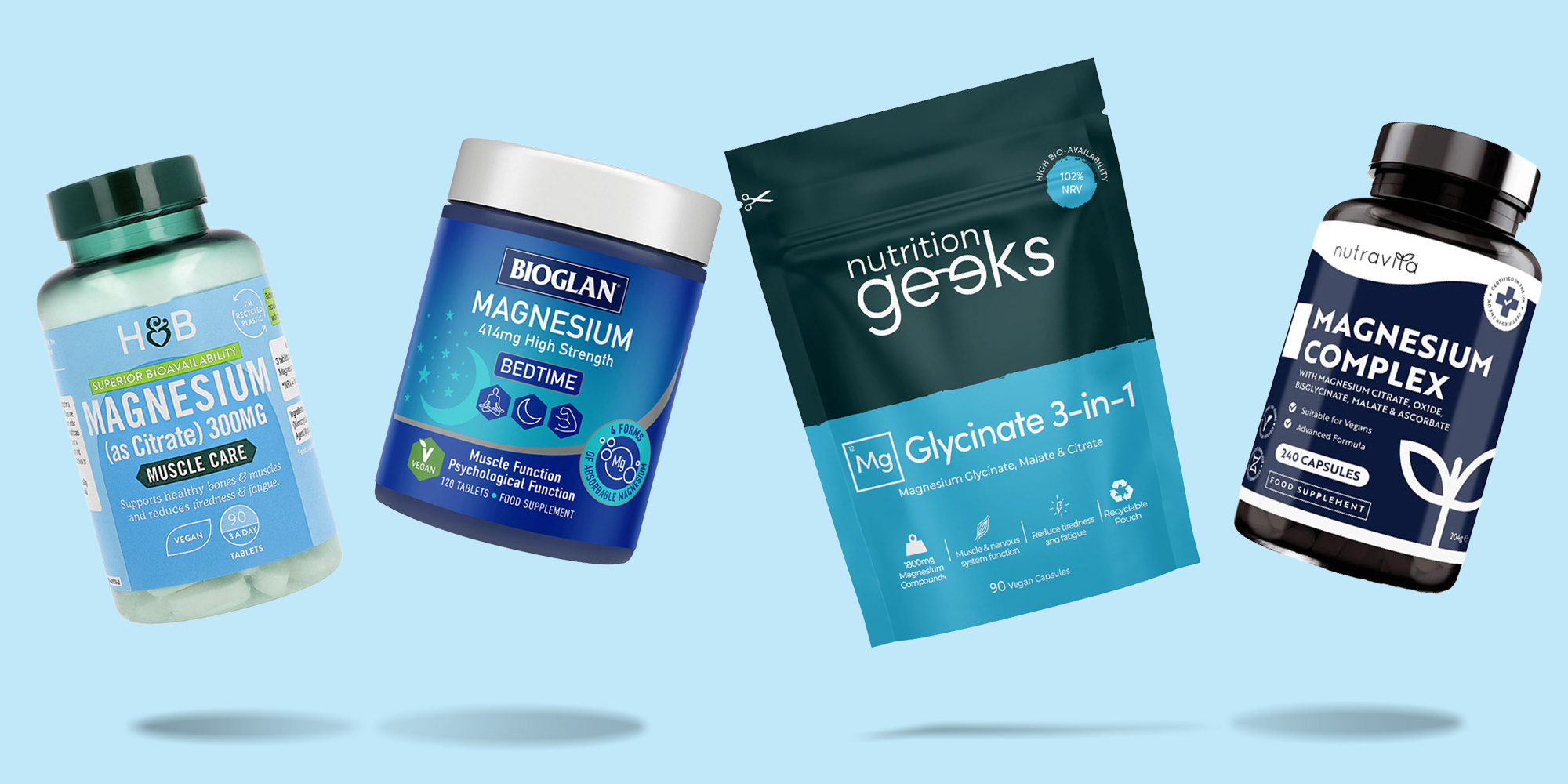
Our independent review of magnesium supplements will help you to find products you can trust.
Supplements can't replace a healthy, balanced diet, but for some people they can be a helpful addition, or correct a deficiency.
Our dietary and nutrition experts have analysed the contents of 26 popular magnesium supplements, rating each for the quality and quantity of magnesium they contain, as well as other aspects such as the use of additives and fillers, to uncover the best.
Any products we recommend have also been independently lab-tested to make sure they contain what they claim to.
We've found that the most expensive supplements aren't always the best option, and some have more unnecessary extras than others.
How our tests find you the best supplements
Bioavailability of nutrients
We assess how easily absorbed the magnesium used is. Some formats are more readily absorbed by the body than others
Dose
We assess the dose included and deduct points for doses that are too low to be effective or excessively high.
Additives
Based on the latest research and insights, we rate the amount and type of bulkers, fillers and additives in each supplement. The fewer unnecessary extras included, the better.
Lab tests
High-scoring products we plan to recommend are tested in an independent test facility to ensure they contain what they claim to.
Only logged-in Which? members can view our full magnesium supplement test results.
Join Which? to get instant access to our test results and Best Buy recommendations below as well as revealing our Great Value pick.
| Magnesium supplements | Score | Cost per daily dose | Bioavailability | Dose | Additives |
|---|---|---|---|---|---|
Sign up to reveal Get instant access to this and all our scores and recommendations Unlock tableDigital £8.99 per month, cancel any time. Already a member? Log in | 92% | ||||
| 90% | |||||
| 90% | |||||
| 87% | |||||
| 85% | |||||
| 81% | |||||
| 80% | |||||
| 77% | |||||
| 70% | |||||
| 67% | |||||
| 59% | |||||
| 53% | |||||
| 51% | |||||
| 49% | |||||
| 45% |
Sign up to reveal
Get instant access to this and all our scores and recommendations
Unlock tableDigital £8.99 per month, cancel any time.
Already a member? Log in
Date tested: July 2025. Page last checked: September 2025. We are not able to show every retailer and cheaper prices may be available.
A selection of popular magnesium supplements included in our assessment are listed in alphabetical order below.
Only logged-in Which? members can view the best magnesium supplements and see our full reviews and results.
Join Which? to get instant access to our test results and Best Buy recommendations below.
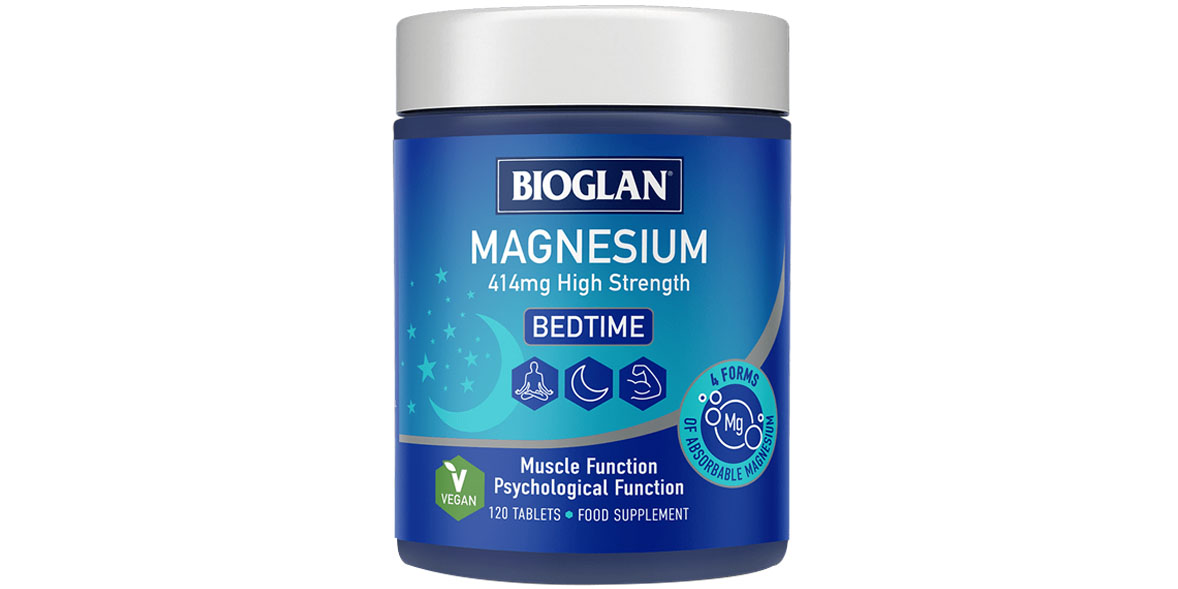
Our score and verdict Login in or join Which? to instantly reveal
Available from Boots (£19.20 for 120)
Cost per daily dose 16p
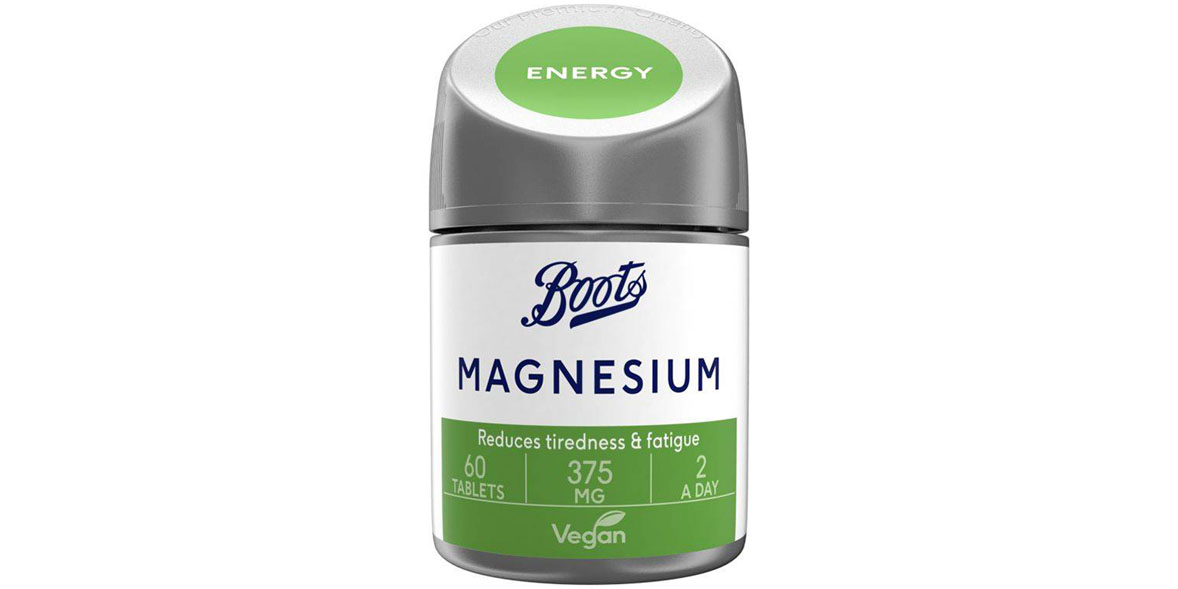
Our score and verdict Login in or join Which? to instantly reveal
Available from Boots (£6.50 for 60)
Cost per daily dose 22p
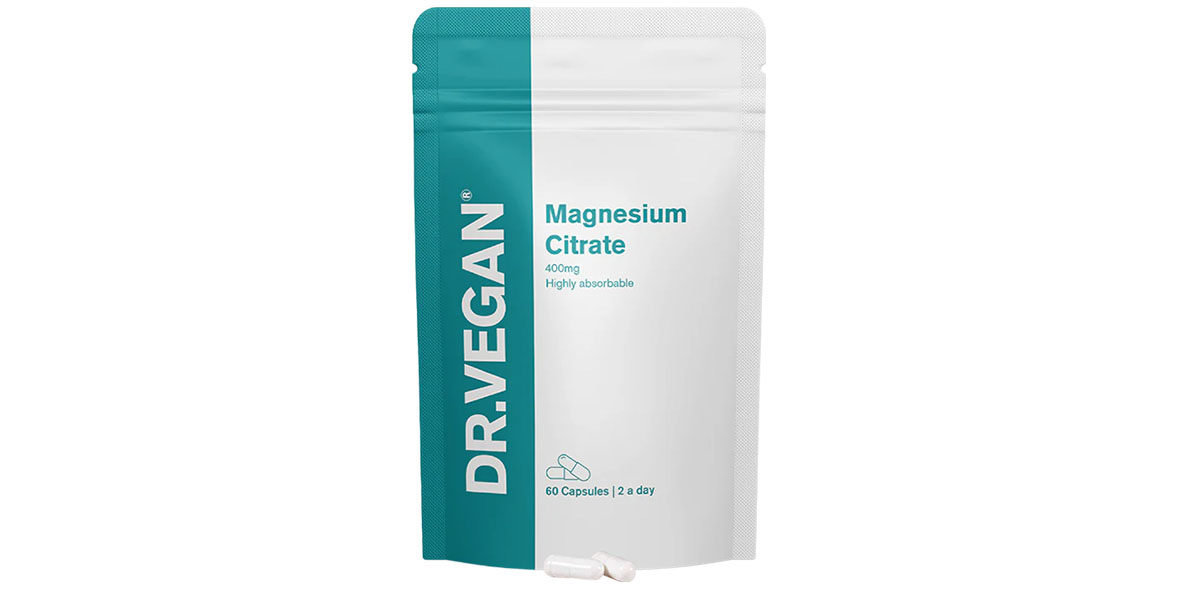
Our score and verdict Login in or join Which? to instantly reveal
Available from Dr Vegan (£8.99 for 60), Amazon (£8.99 for 60)
Cost per daily dose 30p
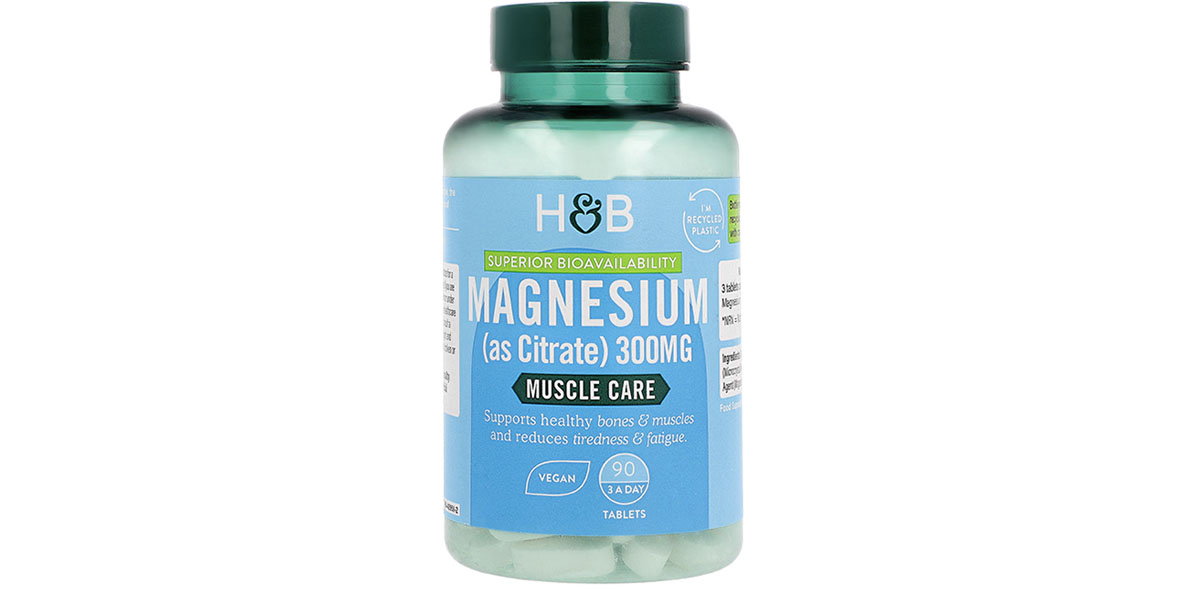
Our score and verdict Login in or join Which? to instantly reveal
Available from Holland & Barrett (£9.49 for 90)
Cost per daily dose 31p
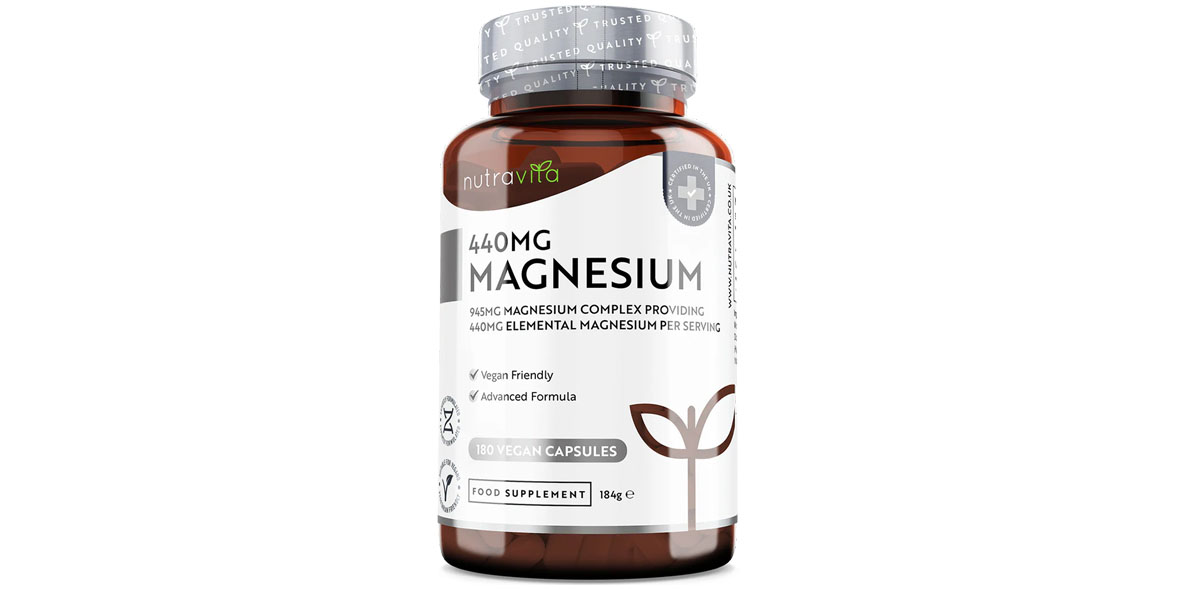
Our score and verdict Login in or join Which? to instantly reveal
Available from Nutravita (£17.99 for 180), Amazon (£17.99 for 180)
Cost per daily dose 20p
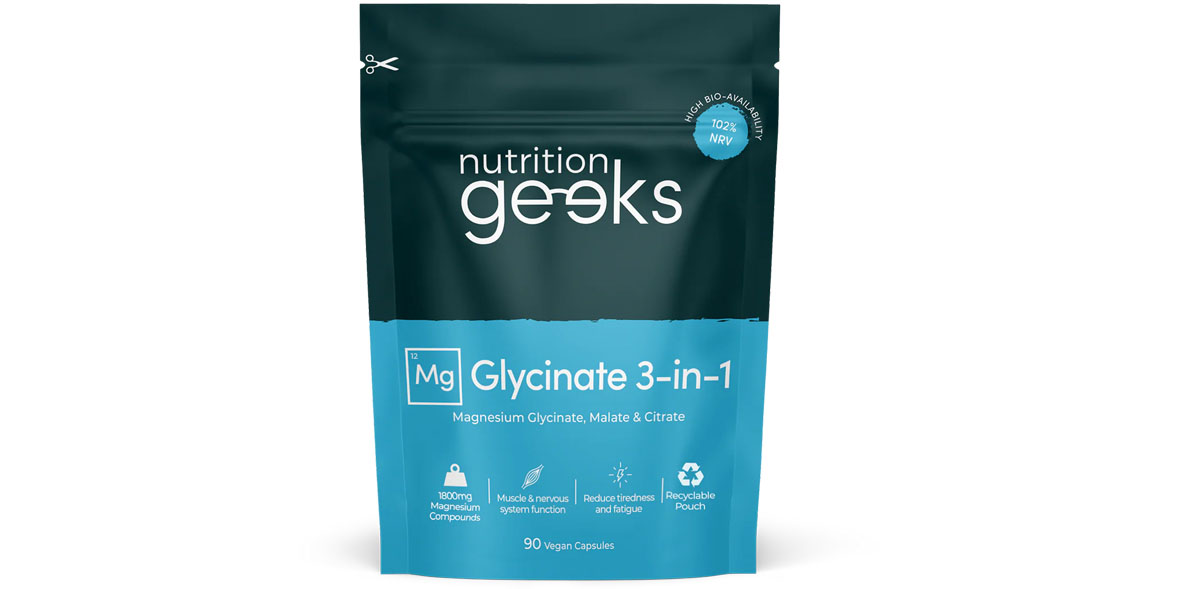
Our score and verdict Login in or join Which? to instantly reveal
Available from Nutrition Geeks (£9.99 for 90), Amazon (£9.99 for 90)
Cost per daily dose 22p
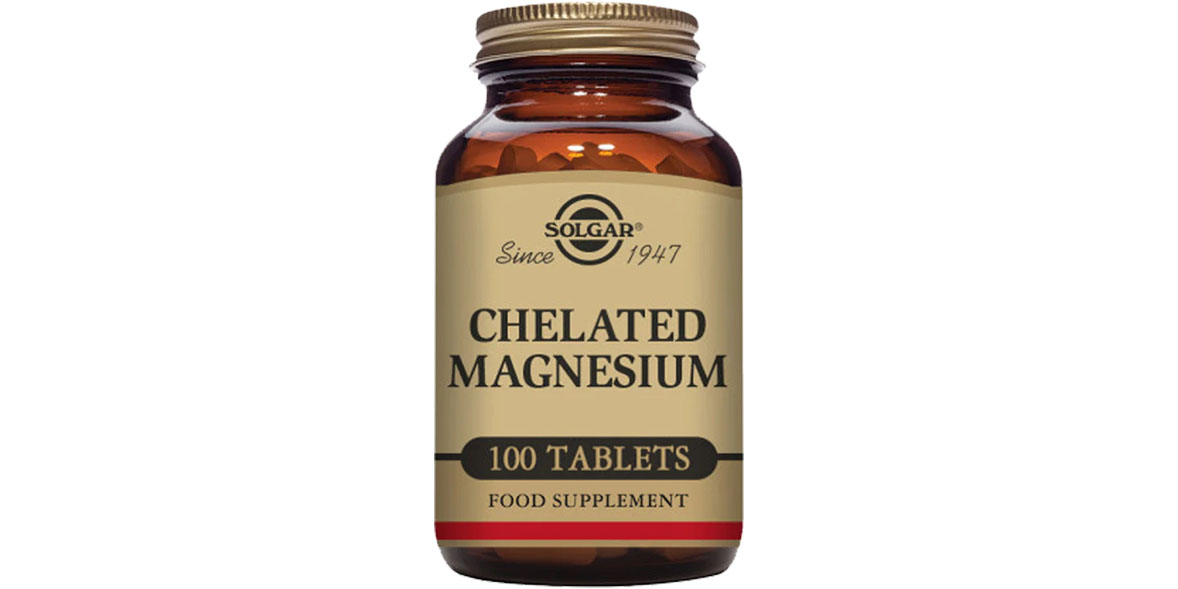
Our score and verdict Login in or join Which? to instantly reveal
Available from Solgar (£16.90 for 100), Holland & Barrett (£15.50 for 100), Amazon (£10.95 for 100)
Cost per daily dose 68p
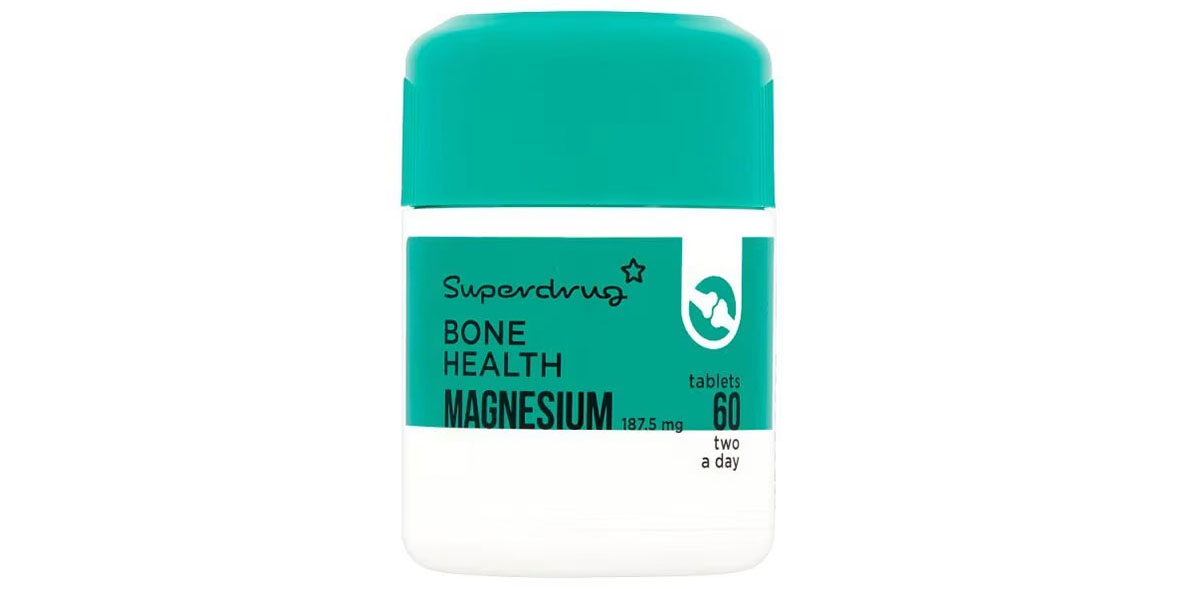
Our score and verdict Login in or join Which? to instantly reveal
Available from Superdrug (£6.49 for 60)
Cost per daily dose 22p
Read more about the supplements you do and don't need
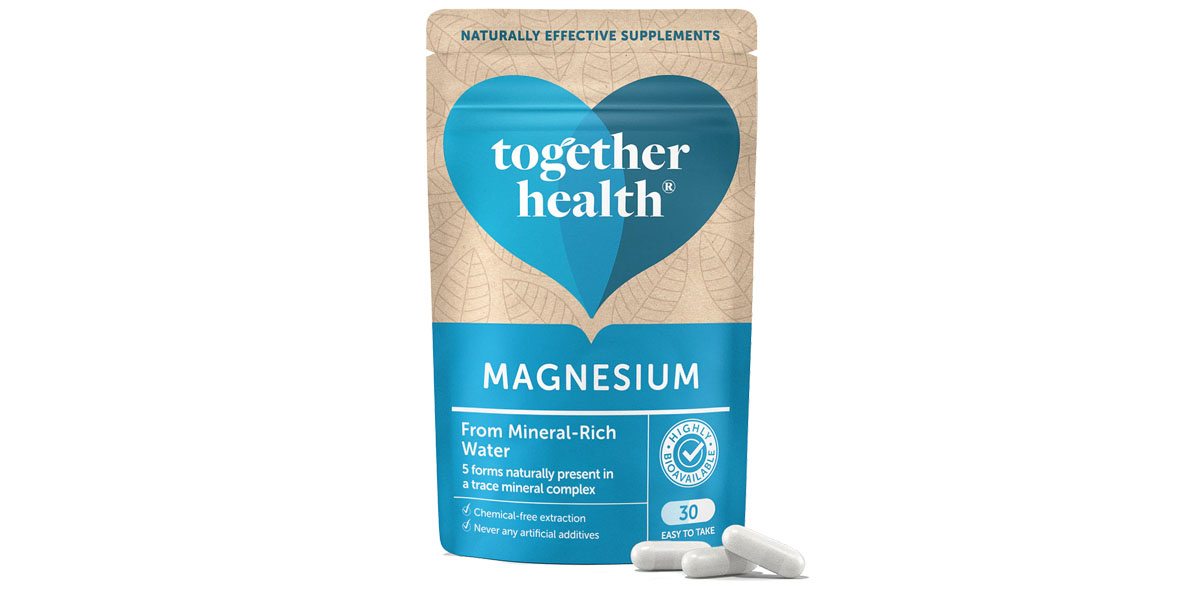
Our score and verdict Login in or join Which? to instantly reveal
Available from Together Health (£7.49 for 30), Ocado (£6.15 for 30), Holland & Barrett (£6.99 for 30)
Cost per daily dose 25p
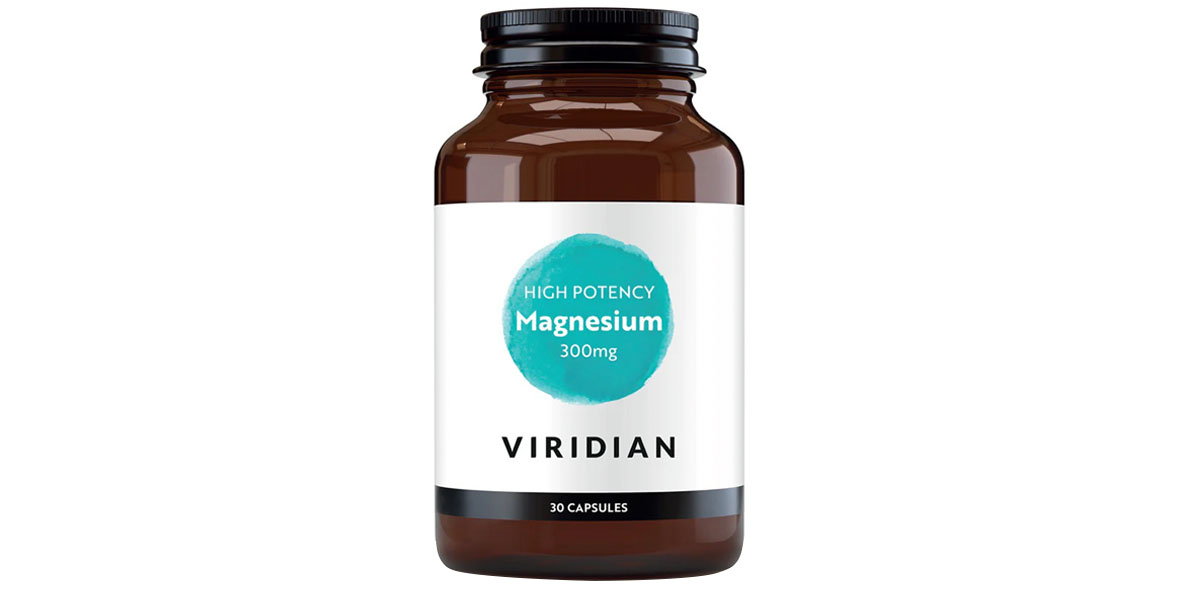
Our score and verdict Login in or join Which? to instantly reveal
Available from Viridian (£11.20 for 30), Amazon (£9.99 for 30)
Cost per daily dose 37p
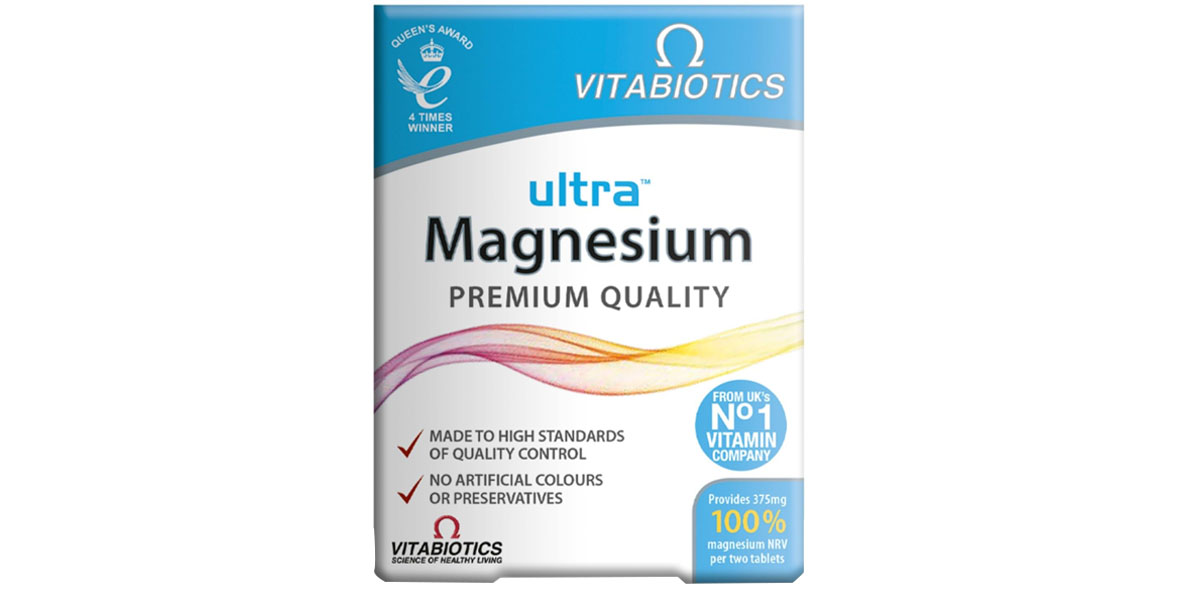
Our score and verdict Login in or join Which? to instantly reveal
Available from Vitabiotics (£5.95 for 60), Boots (£5.79 for 60), Holland & Barrett (£4.34 for 60)
Cost per daily dose 20p
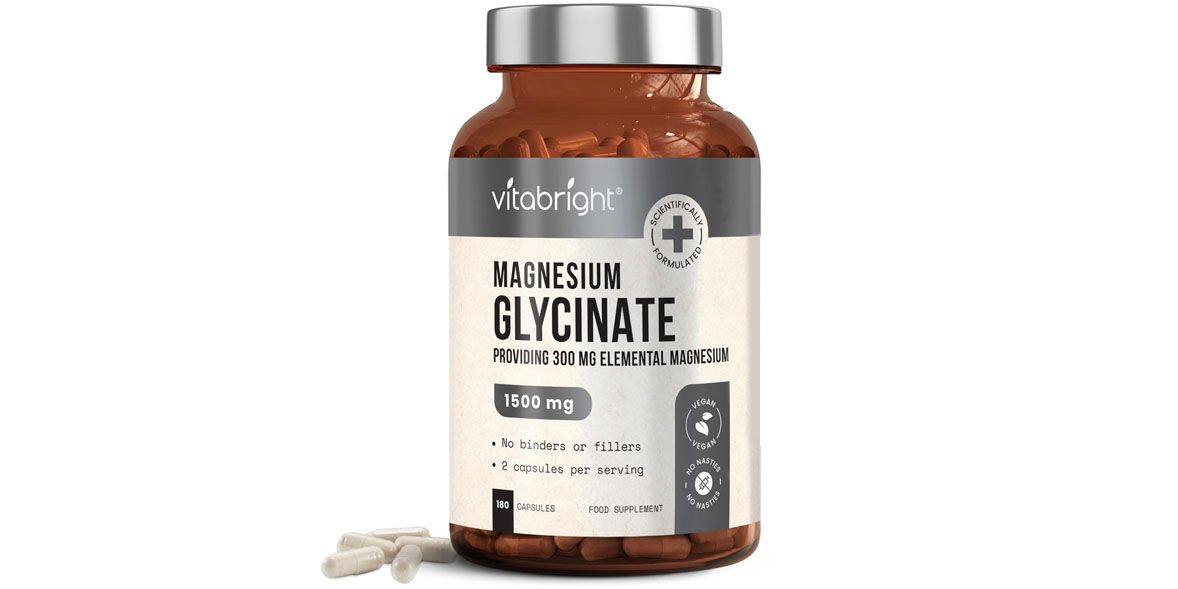
Our score and verdict Login in or join Which? to instantly reveal
Available from Superdrug (£16.99 for 180), Amazon (£17.09 for 180)
Cost per daily dose 21p
Here’s the rest of the magnesium supplements we tested, listed in alphabetical order.
Only logged-in Which? members can view our full magnesium supplement test results. Join Which? to get instant access today.
| Magnesium supplement | Price | Score | Bioavailability | Dose | Additives |
|---|---|---|---|---|---|
| Asda Magnesium | Asda (£1.98 for 30) | ||||
| Holland & Barrett Magnesium Muscle Care | Holland & Barrett (£9.49 for 90) Ocado (£9.25 for 90) | ||||
| Lamberts Magnesium | Lamberts (£9.95 for 60) Amazon (£11.49 for 60) | ||||
| Morrisons Magnesium | Morrisons (£3 for 45) | ||||
| Nature's Bounty Magnesium | Amazon (£12 for 100) Sainsbury's (£12 for 100) | ||||
| New Leaf Magnesium 4-in-1 | New Leaf (£13.95 for 120) Holland & Barrett (£12.95 for 120) | ||||
| Nutravita Magnesium Complex | Nutravita (£19.99 for 240), Amazon (£17.99) | ||||
| Our Remedy Magnesium Citrate | Boots (£9.99 for 60), Our Remedy (£9.99 for 60) | ||||
| Sainsbury's Magnesium | Sainsbury's (£4.40 for 60) | ||||
| Solgar Magnesium Citrate | Solgar (£15.60 for 60, Holland & Barrett (£11.20 for 60) | ||||
| Valupak Vitamins Magnesium | Ocado (£1.25 for 30) Travelpharm (£1.09 for 30) | ||||
| Viridian Magnesium Bisglycinate | Viridian (£15.55 for 60), Revital (£10.90 for 60) | ||||
| Vitabright Magnesium Citrate | Vitabright (£18.99 for 240), Amazon (£15.99 for 240) |
Date tested: July 2025. Page last checked: September 2025. We are not able to show every retailer and cheaper prices may be available.
Why you can trust us: at Which? we're free from manufacturer and retailer influence. Find out more about our impartiality and how your support helps us to stay editorially independent
We selected a range of popular magnesium supplements, including big brands and cheaper own-brand options from pharmacies, health stores and supermarkets.
We've focused on tablets and capsules (as opposed to gummies and sprays), as these are the most popular categories and ensures we're comparing like-for-like products.
Our in-house nutritionist and principal food and health research expert, Shefalee Loth, along with registered dietitian Sophie Medlin, analysed the ingredients contained in each product, assessing them against set criteria.
Our review assesses three key factors:
To qualify as a Best Buy, a magnesium supplement had to meet minimum score thresholds for all three key assessments, score highly overall and pass an independent lab check to ensure the magnesium levels matched what's on the label.
The best type of magnesium is the forms that are readily absorbed by the body and have the fewest side effects. This generally means magnesium glycinate or magnesium bisglycinate.
Although magnesium citrate is well absorbed, it can have a laxative effect causing diarrhoea and stomach issues.
Magnesium L-Threonate is a newer form of magnesium that has become popular in the US, especially in supplements making claims around improved brain health, cognitive function, mood and memory.
This is because of its claimed ability to cross the blood-brain barrier, thereby increasing magnesium levels in the brain. However this research was carried out on rats in a lab.
The UK Food Standards Agency (FSA) and Food Standards Scotland (FSS) have concluded Magnesium L-Threonate is safe for use in supplements. There is now an ongoing public consultation for its use as a Novel food in the UK. Once this is complete it is expected it will be approved for use. We haven't tested any of this type yet, but we will consider it for future reviews.

Many sources claim that magnesium glycinate is best for sleep. This is likely to be because the glycine component is a calming neurotransmitter and magnesium glycinate/bisglycinate is one of the most bioavailable forms of magnesium.
However, there isn't any convincing evidence that one form of magnesium is better than another for sleep, according to our expert dietitian Sophie Medlin.
This also applies to other types of magnesium, such as magnesium malate, and claims around muscle recovery and reduction of tiredness and fatigue.
Best anti-snoring devices - our independent test with real snorers uncovers which gadgets can help to reducing snoring at night

Magnesium is an essential mineral that plays a crucial role in more than 300 biochemical reactions in the body. It supports nerve and muscle function, energy production from food and bone health.
It's also key in maintaining a healthy heart rhythm, electrolyte balance and reducing tiredness and fatigue.
Authorised health claims for magnesium (meaning there is sufficient evidence to support their use) include that it contributes to:
Magnesium deficiency isn't that common but low levels have been associated with a number of chronic diseases, including heart disease, type 2 diabetes, migraine headaches and Alzheimer's.
Symptoms of magnesium deficiency include: nausea or vomiting, loss of appetite, fatigue or weakness, muscle weakness, twitches and cramps.
Those more at risk of deficiency are people with restricted diets or malabsorption conditions such as coeliac disease, Crohn's or ulcerative colitis. Older people may also experience lower magnesium levels because of increased difficulty absorbing it from the diet with age, coupled with reduced appetite.
There are also some medicines that can reduce levels, such as proton pump inhibitors (PPIs), diuretics, and some heart medicine.
Symptoms are often mild to begin with and easy to overlook or mistaken for something else. If you're experiencing symptoms, you should discuss these with your GP to rule out other potential causes.
Get the lowdown on magnesium and sleep, including insight and advice from the experts, in our podcast on magnesium supplements

The NHS recommends 300mg magnesium a day for adult men and 270mg a day for adult women.
However the nutrient reference value (NRV) for adults is 375mg; this is the recommended daily intake level considered adequate to meet the nutritional needs of most healthy adults and prevent deficiency and many supplements contain this.
You will also be getting some magnesium from the food you eat though.
Taking up to 400mg a day in supplement form is safe. But taking more than 400mg, even for a short period of time, can lead to diarrhoea.
This is especially the case if the magnesium is in the form of magnesium citrate. High doses can also cause nausea and stomach aches.
If you're taking magnesium to help with sleep then you may want to take it at dinner time or bedtime. If this makes you feel unwell or 'hungover' the next morning, try taking it earlier in the day. If you're taking it to reduce tiredness then taking it in the morning or during the day will be more beneficial.
Expert dietitian Sophie Medlin says: 'Anecdotally, I have heard from patients that magnesium supplements have caused them hangover-like symptoms. It's likely this is due to magnesium being a type of salt, so if you're not drinking enough water, it can make you feel dehydrated. This is especially pronounced if you take it at night time, as you're not rehydrating as much as you would during the day.'
Many magnesium supplement brands recommend taking it with food. This can reduce the risk of side effects such as stomach aches.
Ultimately, the best time to take a supplement is a time that works with your routine and you're most likely to remember to take it.

Magnesium is widely available in many foods. Good sources include:
Other good sources are avocados, oily fish (salmon and mackerel) and dark chocolate.
Best multivitamins - see our independent expert reviews for the best options to buy
If you have any pre-existing health conditions or are taking regular medication then you should check with a healthcare professional such as a doctor or pharmacist before starting to take any supplements including magnesium.
People with kidney disease should not take magnesium supplements. This is because kidneys filter excess magnesium from our bodies. If your kidneys aren't functioning fully, magnesium can build up to dangerous levels and lead to health problems including low blood pressure, muscle weakness and cardiac issues. It also shouldn't be taken by people who have heart issues.
Magnesium supplements can exacerbate diarrhoea in some people with IBS and bowel diseases, especially when they contain magnesium citrate.
Magnesium supplements can interact with a variety of medications, affecting their absorption and/or effectiveness, including certain antibiotics, diuretics and drugs taken to treat high blood pressure and osteoporosis.

Use our expert advice and recommendations to live your best life every day.
Get startedShefalee Loth, Which? principal researcher and nutritionist

Shefalee is a public health nutritionist with 20 years' experience, and has worked for the NHS, The London School of Hygiene & Tropical Medicine and World Cancer Research Fund.
At Which?, Shefalee is a principal researcher, researching and writing food and nutrition content for our magazine and website and is a media spokesperson. She is also the research lead for our health and wellbeing reviews. She is a trustee at Sustain, the food and farming alliance.
Shefalee focuses on cutting through the hype to explain what you need to know about nutrition and healthy eating. From 'How bad is ultra-processed food?' to the 'Top gut health myths you need to know about' and 'What really works to cut cholesterol', she gives no-nonsense advice to help you make healthier choices and save money.
Sophie Medlin, consultant dietitian and founder of CityDietitians

Sophie Medlin is a well-recognised consultant dietitian with nearly 20 years experience working across the NHS and academia and within her own private practice at CityDietitians.
Sophie is chair of the British Dietetic Association for London.
With her in-depth knowledge of nutrition – both theoretical and applied – Sophie has helped formulate supplements, giving her insight into the strengths and weaknesses of products and the manufacturing process.
We reveal what you need to know about gut health and probiotics